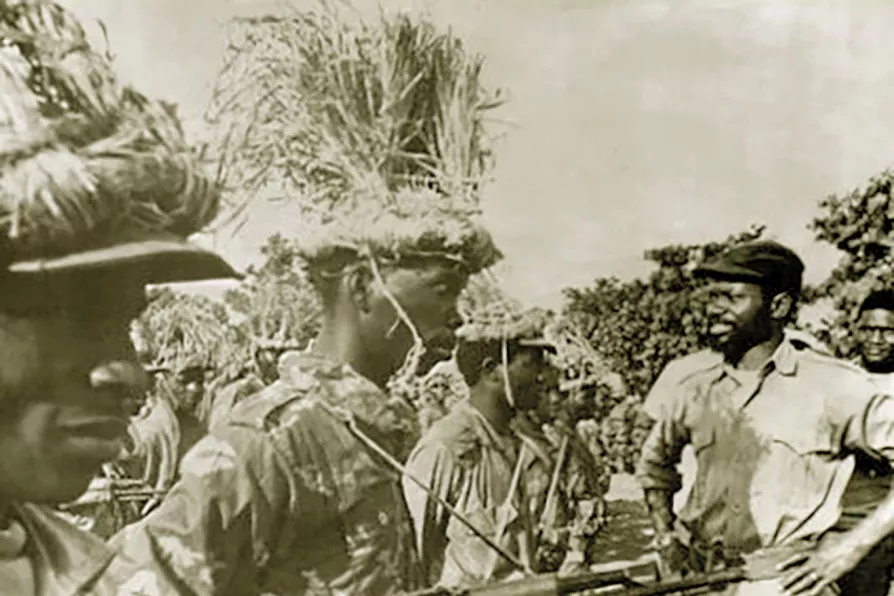John Wojcik pays tribute to a black US activist who spent six decades at the forefront of struggles for voting rights, economic justice and peace – reshaping US politics and inspiring movements worldwide

 LIBERATION: Guerilla forces of the Mozambique Liberation Front, who finally won their independence from Portugal in 1975, following a ceasefire and withdrawal of Portuguese troops after the Carnation Revolution
LIBERATION: Guerilla forces of the Mozambique Liberation Front, who finally won their independence from Portugal in 1975, following a ceasefire and withdrawal of Portuguese troops after the Carnation Revolution
ON APRIL 24 1974, the people of Portugal overthrew the fascist dictatorship of the Estado Novo after nearly five decades of brutal rule. Textile workers, engineers, women’s movements and landless peasants joined hands with the increasingly exasperated soldiers of Portugal’s colonial army. They took to the streets in droves. Passersby put red flowers in the barrels of the soldiers’ guns, christening the uprising the Carnation Revolution.
A few days later, on May 1 1974, the nations of the South mounted a collective offensive against the neocolonial economic system. At the United Nations general assembly, they proposed the New International Economic Order (NIEO), an ambitious vision that sought to translate the gains of political decolonisation into a new economic compact made in the image of the South.
The story of the Carnation Revolution — like that of the NIEO — was one of Southern protagonism in an international system long characterised by Northern domination. Both moments were forged in the convergence of two historical processes that shaped the course of the 20th century.

ISAAC SANEY points to the global stakes involved in defending the Cuban revolution against imperialism and calls for resistance

The charter emerged from a profoundly democratic process where people across South Africa answered ‘What kind of country do we want?’ — but imperial backlash and neoliberal compromise deferred its deepest transformations, argues RONNIE KASRILS

The obfuscation of Nazism’s capitalist roots has seen imperialism redeploy fascism again and again — from the killing fields of Guatemala to the war in Ukraine, writes PAWEL WARGAN










